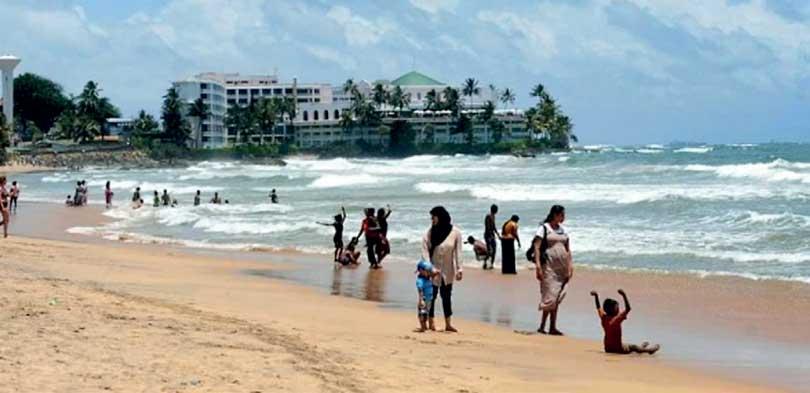Reply To:
Name - Reply Comment

Mount Lavinia sea
 An oil spill occurred earlier this month stretching 1 km from the Mount Lavinia beach to Wellawatte. The Marine Environment Protection Authority (MEPA) warned the public to limit using the stretch and along with volunteers from Sri Lankan Navy, Sri Lanka Coast Guard and Disaster Management Centre (DMC) cleanup efforts began. Clean up operations were completed by Wednesday (June 5) and the public was free to use the beach area once again. The cause of the spill, which is still unknown, is suspected to be either an accident or oil deliberately released from a ship or boats. A complaint was filed with the Mount Lavinia Police on this regard and a sample of the oil was collected to be analysed.
An oil spill occurred earlier this month stretching 1 km from the Mount Lavinia beach to Wellawatte. The Marine Environment Protection Authority (MEPA) warned the public to limit using the stretch and along with volunteers from Sri Lankan Navy, Sri Lanka Coast Guard and Disaster Management Centre (DMC) cleanup efforts began. Clean up operations were completed by Wednesday (June 5) and the public was free to use the beach area once again. The cause of the spill, which is still unknown, is suspected to be either an accident or oil deliberately released from a ship or boats. A complaint was filed with the Mount Lavinia Police on this regard and a sample of the oil was collected to be analysed.
Sunday being a holiday is a popular day for the public to visit the beach apart from the usual joggers and fishermen. Fewer crowds than usual gathered, but a few people could be seen swimming in the Mount Lavinia sea around 05.30 pm on Sunday (June 2). Although a small number of uniforms were gathered around the lifeguard deck they did not prohibit the public from using the beach. The only sign of the oil slick was the gooey substance that stuck onto feet and wasn’t easy to rub off.
According to MEPA General Manager, Dr. P. B. Terney Pradeep Kumar, the oil that washed ashore is called ‘tar balls’. He said that the oil spill was minor and does not have any effect on fish consumption as fish do not consume these tar balls. He did confirm that there could be some effect to the environment, although these effects would not be visible at present.
Sri Lanka joined MARPOL 73/78, an international convention for the prevention of pollution from ships at sea in 1997. According to its regulations, pollution by oil from operational measures as well as accidental discharges is mandatory to be reported. Dr Terney pointed out that they had not received any report on the oil spill so far.
The cause of the spill is suspected to be either an accident or oil deliberately released from a ship or boats. A complaint was filed with the Mount Lavinia Police on this regard
Another recent oil spill that Sri Lanka recovered from is the one that occurred in the seas off Muthurajawela on September 8, 2018. The cause was identified to be the breakdown of a pipeline carrying oil to the Muthurajawela Oil Refinery Complex. The fuel that leaked into the sea could be seen in a two and a half kilometre radius stretch of beach in the Dikowita area. According to Dr Terney, the marine and coastal eco-system, smaller fish, marine algae, coastal plants and others were affected by this spill.
Oil spills are a form of pollution caused by the release of liquid petroleum hydrocarbon into the environment by tankers, offshore platforms, drilling rigs and wells and larger ships. Oil spills have both long and short-term effects on the environment. According to MEPA, due to the density of oil, it floats on water and less sunlight penetrates limiting the photosynthesis of marine plants and phytoplankton. Many of the toxic components of the oil sink into the ocean. Birds are also vulnerable when the oil penetrates into the structure of their plumage as oil reduces their ability to keep themselves warm and makes them less buoyant in water.
Oil spills have adverse effects on the environment.